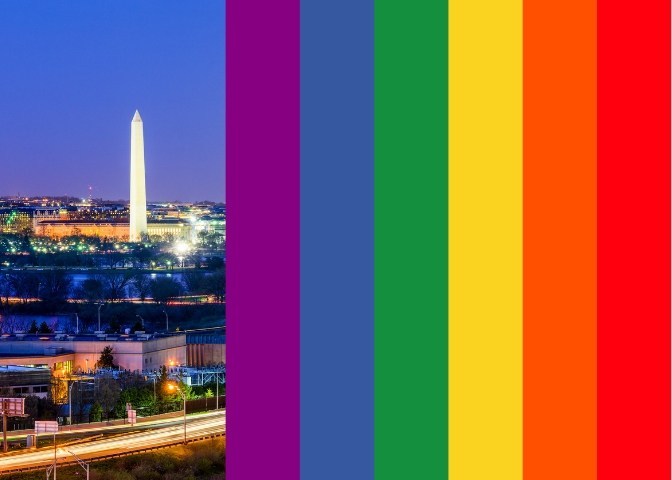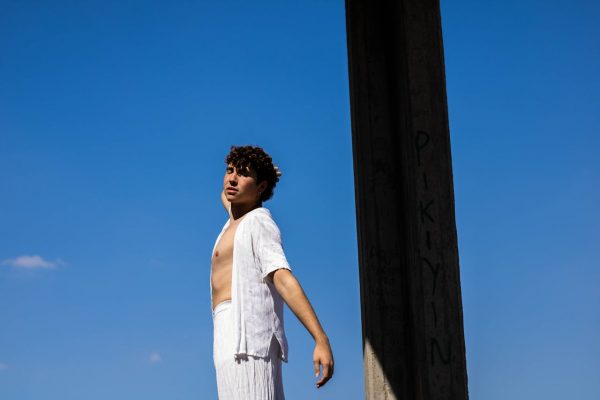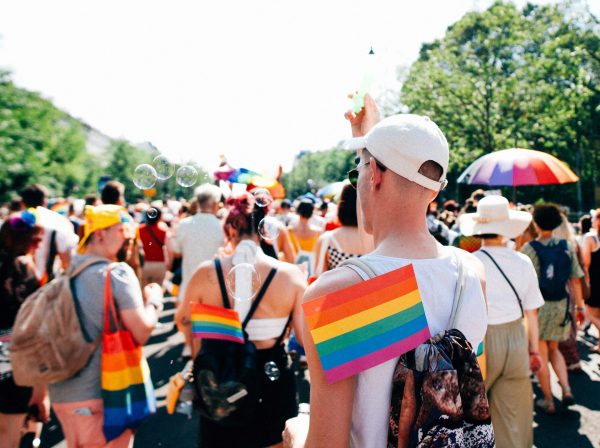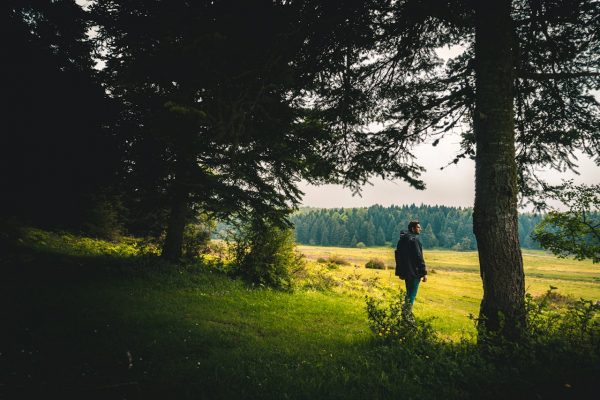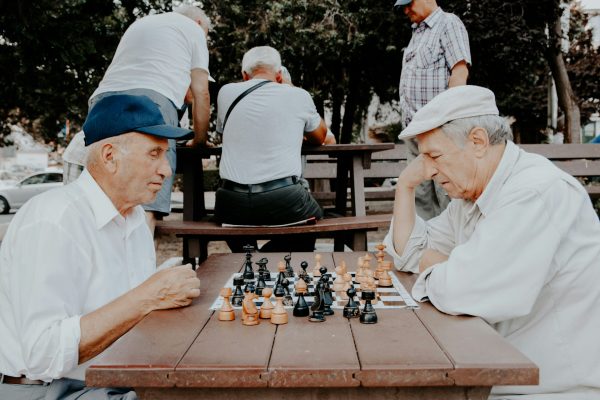Gay Millennials, who I have come to label the Queer Generation, don’t have it easier than those who preceded them. They still combat the stigma associated with being gay that sadly perpetuates 50 years after the Stonewall Rotes of 1969 and they still face the ongoing spread of HIV, which most overwhelmingly inflicts our population. Then add to these burdens the reality of coming of age in a post-financial-crisis world, which almost certainly ensures that most of these young men will not have the wealth of those gay men, like me, who came before them, and life for these young gay men is not so rosy.
As if these conditions were not deleterious enough, gay men of the Queer Generation emerging into adulthood in the United States also face the wrath of the current presidential administration, led by the hatred of Mike Pence and fueled by the narcissism and ignorance of Donald Trump–which chips away at our rights, diminishes our worth, and fuels the health disparities for yet another generation of gay men. The ongoing litany of microaggressions experienced by young gay men includes the administration’s denial for embassies to fly the Pride Flag, the refusal for trans soldiers to serve in in the military, and the permission granted to healthcare providers to not care for us, under the manipulation of religious freedom. These conditions give way to the rise in macroaggressions—hate crimes and other attacks on LGBTQ people have risen since 2017.
These indeed are the conditions that member of the Queer Generation face. True, bars are not being raided and patrons are not being arrested, as were the experiences of those of the Stonewall era (at least not in the United States) and these young gay men are not coming of age when no one knew anything about AIDS, a disease which has killed 625,000 of us to date. Indeed, in some ways “it” has gotten better since that fateful night on June 28, 1969, and since the darkest hours of the 1980s and 1990s, but it’s still not great.
As if these realities were not challenging enough, this innovative and thoughtful generation also faces the unenviable tasks of dismantling the monolith that has defined the LGBTQ population—namely the archetype of the white privileged hypermasculine man that has dominated depictions of gay culture for decades—what some might call the “A list gay man.” And this is a fight that Millennial gay men are wholeheartedly embracing. The inclusion of the black and brown stripes in the Philadelphia Pride Flag is symbolic of the ethos and conversations about race, ethnicity, culture, and class that has emerged in the lasts several years in the LGBTQ population led by the Millennials. Alas, it has its about time for the racist ways of the gay community to come out of the closet and be confronted.
This is not to say that previous generations were blind to this situation rooted in the racism, marginalization, and objectification of society and that gay men impose on each other. But in their battles against the illegality and psychopathology assigned to homosexuality and in their war against AIDS, this critical challenge had not bubbled to the surface. The time must be now.
The intelligence with which young gay men have come to understand these cultural challenges within the LGBTQ population has informed their efforts to dismantle the archetype of the white hypermasculine privileged cisgender gay man which has for too long informed understanding of our population, at the expense of L, B, T, and Q people across the racial, ethnic, cultural, and class spectra. Confronting these social conditions within our population was front and center in my conversations with Queer Generation gay men, whom I interviewed for my book examining the coming out stories for men over the last 50 years. While the notions of multiple intersectional identifies were absent from the interviews of the men of the Stonewall Generation with whom I spoke and were only primitively understood by men of my age, the AIDS Generation, the beauty and respect for the multiple identifies LGBTQ people hold was understood with sophistication and nuance by the young men all in their 20’s. In their perspective, the intersectionality we hold as gay men must be celebrated and must be used to define, portray our population with reverence to the challenges faced by gay men who do not fit squarely into the white, hypermasculine, privileged stereotype of the gay community. In this regard, one of the young men, Yassar, a Black man raised by highly religious Ghanaian immigrants parents in North Carlin and who wore the most magnificent yellow nail polish to our interview said:
As far as like my identity goes my queer identity, it’s not as bad. It’s not really as bad, but then like when you’re including that with my blackness it’s been pretty rough considering a lot of trans women, black trans women being killed, being slaughtered, honestly. Like I think the 23rd trans woman was killed recently. Like two weeks ago.
And so this generation, the Queer Generation, demands that we move beyond the experiences of gay men that have dominated most cultural representations of our population. Case in point: the television program, Queer As Folk. Unlike the characters in that fictional depiction of gay life in the 21st century, most gay men are not like Brian Kinney, a perfectly chiseled hypersexual ad exec who owns a loft in which we all aspire to live, but more like Chiron depicted in the film Moonlight, the African American man growing up in dire circumstances and who goes on to life a drug dealer and who does not act on his sexuality in his young adulthood or Frankie, the protagonist of the film Beach Rats whose life in working-class Coney Island is defined by hiding his sexuality to fit in while acting on his desires in self-hating ways under the cover of night.
Like their fictional contemporaries Chiron and Frankie, members of the Queer Generation know all too well that the coming out experiences of gay man are predicated on these intersectional identities that we hold. Their own lived experiences are more akin to those of Chiron and Frankie, and not like the experiences of Blake, a 20-something upper middle class young gay man New Yorker, portrayed by Ben Platt in a 2017 episode of Will & Grace, for whom coming out may be the first real challenge he has faced in his life. Unfortunately the Ben-depiction reinforce the views within society that being gay nowadays is walk in the park—hardly the case for many gay men of color, gay men of more limited means, gay men raised in immigrant families, or those working and poorer economic classes who have come to know their own coming out experiences are more challenging—heck their lives are more challenging—factors that explain why young gay black and Latinx men are most vulnerable to HIV and other health disparities. Miguel, a Latinx member of the Queer Generation who grew up in working-class Boston, articulated these ideas:
If you grow up in an American household that identifies as white, I feel like you can have a coming out experience that’ll be, not only, like, affirming, but even, like, like wanted. Like, some parents actually want their children to be gay because, like, they think that their kids will live, like, some more fabulous lifestyle than theydo. [Also], the simpler your life is, the less problems you have to think about, which is inherent with what white people think that, you know, that racism isn’t a problem because, if you grow up, if you grow up in white supremacy, you don’t have much to think about. You don’t have problems to think about like that. It’s just not your concern.
For most gay men of the Queer Generation, the main struggles in their lives may be informed more by the intersection of race, ethnicity, culture, and/or class with sexual identity; the challenge of being gay is just one other that they face: “Most of the experiences that I had happened, or occurred due to me being Black and gay.”
It is for this reason that symbolically the black and brown stripes on the Pride Flag matter, and it is why we as a population have to continue to fight, not only against those would oppress us through state-sanctioned initiatives, policies, and laws but also against the oppression we place on ourselves. The battles for LGBTQ rights wage on—for men of the Queer Generation (and frankly for all LGBTQ people) it is our new Stonewall.


